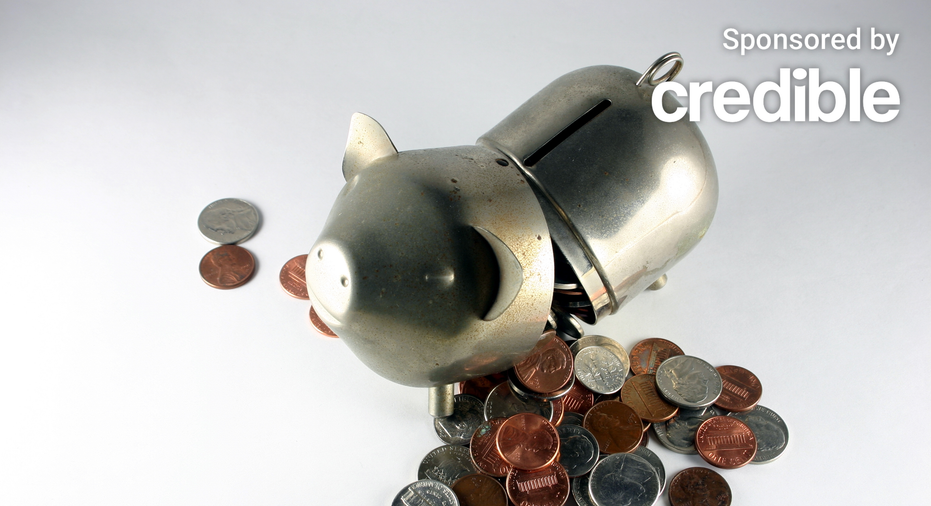Nearly half of Americans cash out 401(k)s when changing jobs
Withdrawing 401(k) funds before age 59.5 can trigger income taxes and penalties

When leaving jobs, employees can transfer their 401(k) balances to a new 401(k) or an IRA.
After leaving their jobs, 41.4% of Americans withdrew funds from their previous employers’ 401(k) plans, and 85% of those completely depleted their balances, according to a study published by the UBC Sauder School of Business.
"They take every penny out," Sauder Associate Professor Yanwen Wang said in a statement. "Roughly two-thirds take it all out at once, and the rest make multiple withdrawals. But on average, within eight months, they take everything."
Of those who withdrew funds from their 401(k), only 27.3% had experienced involuntary job separations including layoffs and terminations, and "it’s unlikely that all of them needed emergency funds," the Sauder study concluded.
Wang attributed the trend in pre-retirement 401(k) withdrawals to system design, economics, psychology or a combination of all. Generous employer matches could also influence some employees’ perceptions of their retirement savings, Wang said.
"For example, if the employer does a one-to-two match, where for every $1 you contribute your employer will match $2, it can change the psychological sense of ownership of those 401K accounts," Wang said. "So instead of your own saved money, it’s like a windfall. And then it feels more touchable, and more legitimate to spend it when you change jobs."
But while it may seem tempting to withdraw hard-earned retirement savings when leaving jobs, the move could trigger taxes, IRS penalties and other consequences for savers below the age of 59.5.
If you’re struggling in today’s economy and are considering tapping into your 401(k) to make ends meet, you could consider paying down high-interest debt with a personal loan at a lower interest rate to lower your monthly payments. Visit Credible to get your personalized rate in minutes without affecting your credit score.
RETIREMENT PLAN BALANCES DECREASED BY NEARLY 25% IN 2022
Penalties for early 401(k) withdrawals
Workers who withdraw money from traditional 401(k) plans before reaching age 59.5 could face paying income taxes on the distribution, as well as a 10% early-withdrawal penalty, according to the IRS.
In addition, employees would miss out on potential market gains and compound interest if they withdraw funds early. For example, the median account balance for a 30-to-35-year-old is $12,169, according to data by Empower. If someone making pre-tax income of $60,000 changed jobs and invested that balance in a different 401(k), they would have about $760,000 by age 67. This assumes factors such as a contribution rate of 10% of their monthly income and a 6% annual rate of return on investment.
By cashing out early, workers would miss out on potential investment gains and would start saving for retirement all over again.
"Something has to be done — not to control people’s 401(k)s, but to provide enough knowledge so they’re aware of the consequences of their actions," Wang said.
If you’re looking to save more for retirement, you could consider paying down high-interest debt with a personal loan at a lower interest rate. Visit Credible to compare options from different lenders without affecting your credit score.
RECESSION FEARS RISE: MORE THAN HALF OF AMERICANS SAY THEY'D LOSE EVERYTHING
How to rollover a 401(k) after changing jobs
When employers don’t directly transfer former employees’ 401(k) balances to other 401(k) plans or traditional individual retirement accounts (IRA)s in their former employees’ names, there are some steps workers can take to make sure they keep investing in retirement while enjoying tax benefits.
Here are some options, based on IRS rules.
Transfer to a new 401(k): If employees like their new company’s 401(k) plan, they can work with their current plan administrator to transfer their old 401(k)’s balance to the new one. However, if the old company sent a distribution for their balances, workers have 60 days from the date of receipt to deposit those funds into their new 401(k) accounts before potentially facing tax consequences.
Rollover to traditional IRA: Workers who no longer have access to a 401(k) plan or aren’t satisfied with their new employer’s plan could roll over their old 401(k) balances to a traditional IRA. They can open IRAs through most banks or investment management firms and work with plan administrators to get the old funds transferred. Investors can fund their new IRA accounts with nearly any option in the securities world including stocks, bonds, mutual funds and exchange-traded funds (ETFs) of their choice. But because IRAs aren’t sponsored by employers, there are no employer matches. Workers who received checks for their old 401(k) account balances have 60 days to deposit the funds into new IRAs or potentially face tax penalties.
Keep funds in the old 401(k) plan: If plan sponsors allow it, former employees may keep their savings within their former companies’ 401(k) plans. For traditional 401(k) accounts, investments would continue to grow tax-free. But in most cases, former employees won’t be allowed to make additional contributions and they also may face specific fees for no longer being employed by the company.
If high-interest debt is preventing you from saving as much as you can for retirement, you could consider paying it down with a personal loan at a lower interest rate. Visit Credible to speak with a personal loan expert and get your questions answered.
SECURE 2.0 ACT AIMS TO REVAMP RETIREMENT SAVINGS SYSTEM: WHAT IT MEANS FOR YOU
Have a finance-related question, but don't know who to ask? Email The Credible Money Expert at moneyexpert@credible.com and your question might be answered by Credible in our Money Expert column.




















